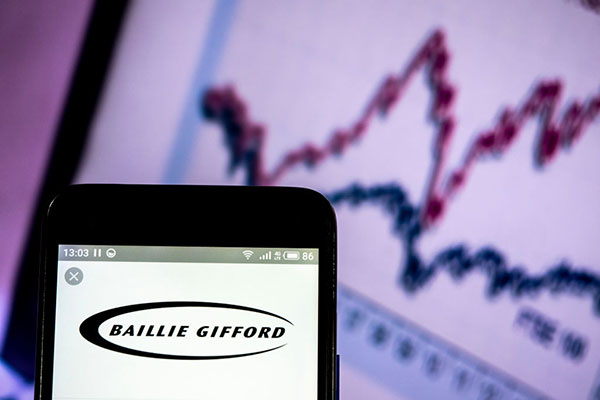‘Disappointing’ returns prompts continuation vote for Baillie Gifford trust
The trust, which changed strategy and was taken over by Baillie Gifford in February 2021, has said it will put a continuation vote to shareholders once five financial years have passed.
30th November 2023 09:00
by Kyle Caldwell from interactive investor

Scottish asset manager Baillie Gifford’s growth style of investing has been out of favour since interest rates starting rising two years ago.
In the case of Keystone Positive Change (LSE:KPC), its change of strategy has proven to be a case of bad market timing. The trust, which was taken over by Baillie Gifford in February 2021, is run in line with the open-ended Baillie Gifford Positive Change fund, which aims to bring investors attractive returns while contributing to a more sustainable and inclusive world. Kate Fox and Lee Qian manage both the fund and investment trust.
- Invest with ii: Buy Investment Trusts | Top UK Shares | Open a Trading Account
Keystone Positive Change's investment objective is focused on generating a return of at least the MSCI AC World index plus 2% a year over rolling five-year periods through a “best ideas” concentrated portfolio of 30 to 60 companies, both listed and unlisted.
Previously, under Invesco’s management, the trust had an income focus and invested in UK equites. It targeted cash-generating companies with strong balance sheets. Its subdued performance promoted the change in management and strategy.
Karen Brade, chair of Keystone Positive Change, said she “recognises that shareholder returns have been disappointing since shareholders approved the change to the company's strategy in February 2021”.
Figures from FE Fundinfo show that since 10 February 2021 the share price total return of Keystone Positive Change is a loss of 6.6% versus a small gain of 1.7% for the average global investment trust.
Due to its performance since the strategy change, Brade said the board is committing to a continuation vote in February 2027, which is the annual general meeting (AGM) immediately following a period of five full financial years since the adoption of the Positive Change strategy.
“Given that the Positive Change team has an investment horizon of five years and beyond, we believe it is appropriate to conduct a fundamental review of financial performance over a similar time horizon and assess the success and viability of the strategy at that point.
“The Baillie Gifford Positive Change open-ended fund remains a top-performing fund over five years. However, we recognise that Keystone's shareholder returns have been disappointing since shareholders approved the change to the company's strategy almost three years ago.”
- Why investment trusts are caught up in a storm
- US activist investor targeting 'cheap' investment trusts
Brade added that if the continuation vote fails, “we will consult with shareholders and propose an outcome that we believe to be in the best interests of shareholders as a whole, which will include a return of capital at close to net asset value (NAV)”.
The continuation vote has been announced at the same time as activist hedge fund Saba Capital Management, run by Boaz Weinstein, has been building a position in the trust. According to specialist publication Citywire, the hedge fund has recently doubled his stake from 5% to 10%.
Citywire reports that Saba also has stakes in Baillie Gifford’s Edinburgh Worldwide and US Growth.
He has also reportedly bought into BlackRock Smaller Companies, Schroder UK Mid Cap, JPMorgan European Discovery, and Henderson Opportunities.
Continuation votes are a permanent feature for some trusts, occurring once a year or over longer periods, such as three or five years.
In other cases, a continuation vote is triggered if a trust persistently performs poorly, or has traded on a wide discount for long periods. A continuation vote can also be called by disgruntled shareholders.
Earlier this year, another trust that proposed a continuation vote on the back of subdued performance was Schroders Capital Global Innovation Trust (LSE:INOV), formerly known as Woodford Patient Capital. It has scheduled a vote in 2025 on whether the investment trust should continue in its present form.
These articles are provided for information purposes only. Occasionally, an opinion about whether to buy or sell a specific investment may be provided by third parties. The content is not intended to be a personal recommendation to buy or sell any financial instrument or product, or to adopt any investment strategy as it is not provided based on an assessment of your investing knowledge and experience, your financial situation or your investment objectives. The value of your investments, and the income derived from them, may go down as well as up. You may not get back all the money that you invest. The investments referred to in this article may not be suitable for all investors, and if in doubt, an investor should seek advice from a qualified investment adviser.
Full performance can be found on the company or index summary page on the interactive investor website. Simply click on the company's or index name highlighted in the article.